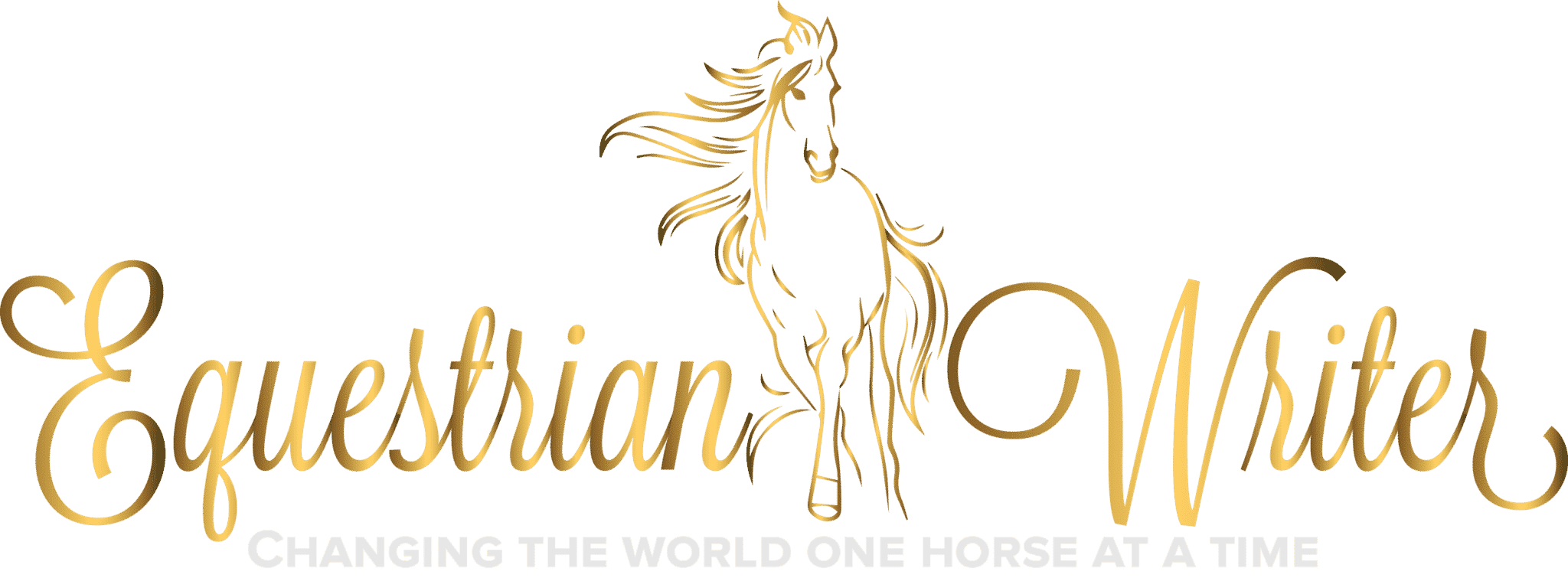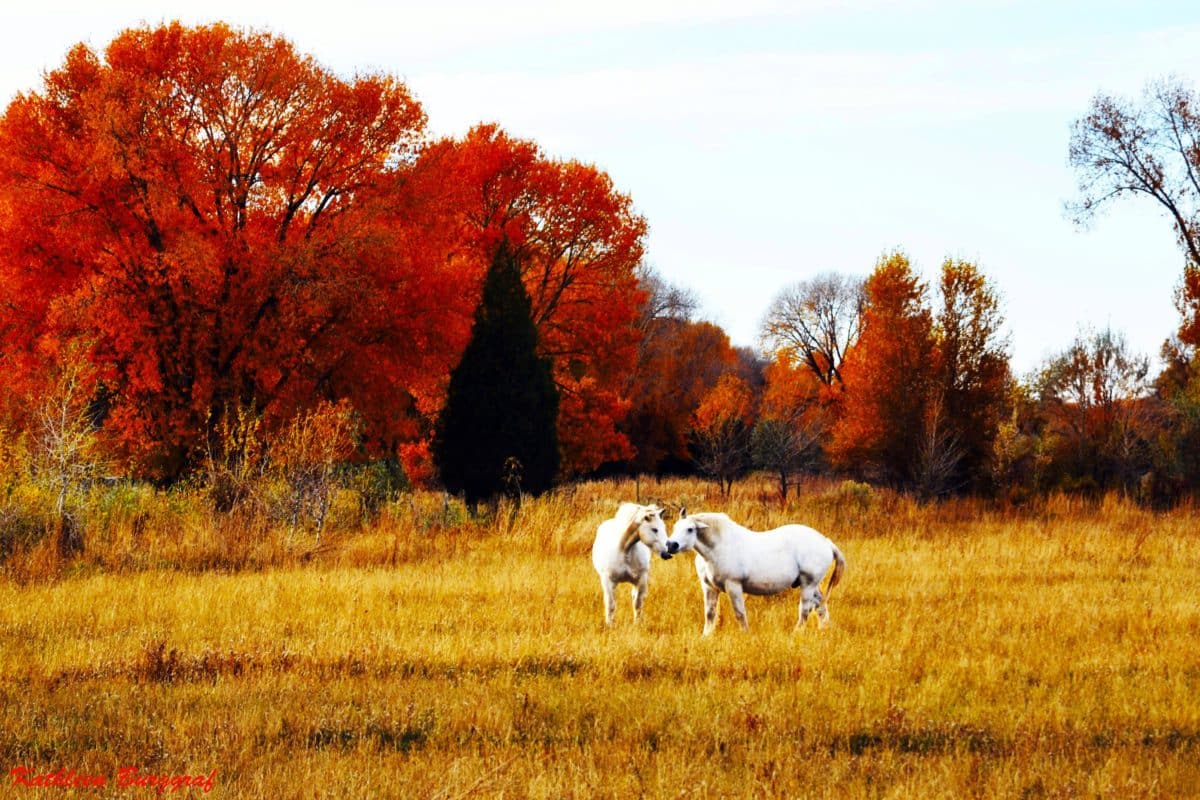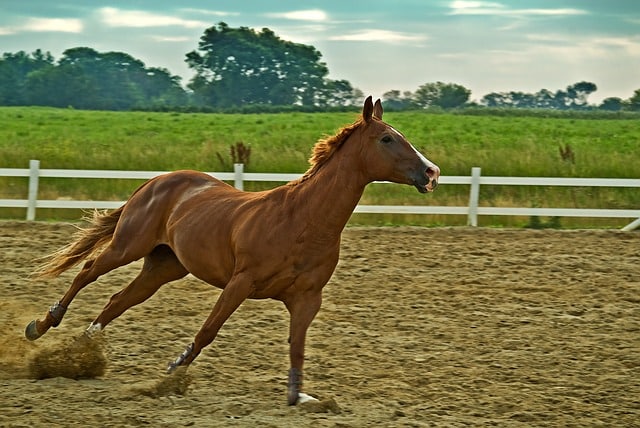
There seems to be a lot of misconceptions about equine intelligence. A common comment I hear about horses is “oh, they’ve got a brain the size of a walnut, they can’t be very smart.” Or another one, “they’re scared of everything, they’re so dumb.” But, when you think about it, how dumb can they really be? Horses have an amazing capacity to learn and understand. They are far more perceptive than they are given credit for.
The Intelligence of Prey Animals
Horses are prey animals. While most have been domesticated for generations, they still maintain a significant amount of their prey instincts. They have no weapons to fight with in the wild. Mother nature did not gift them with claws or horns and their hooves have only limited use as a weapon. This leaves them with only one option to survive; flight. However, in order to survive with flight as their only defense, they evolved to have senses that are second to none. The slightest hint of danger and they bolt. Run now, ask questions later.
According to the Guinness Book of World Records, the fastest speed ever recorded by a horses was 43.97 mph (70.76 km/h) over two furlongs (402 m). Those 402 m were covered in 20.57 seconds. Obviously, most horses won’t be able to reach world record speed. However, most fit horses can reach at least 30mph. A 20 second head start could still give them enough of an advantage to outrun most predators. Thus, horses have evolved extraordinary senses and are extremely in tune with the environment around them.
Does this make them dumb? I think not.
Desensitization
We often think we desensitize horses and overcome their natural flight response, like we somehow invented the concept of desensitization. What many don’t realize, though, is the reason horses take so well to desensitization is that they desensitize themselves in the wild as well. If a horse in the wild spent all day running from every little twig that snapped, he never have time to eat, drink, or rest and horses would have driven themselves into extinction long ago. This is another big sign of equine intelligence. When left to their own devices, horses will learn to differentiate between what is a threat and what is not.
The reason so many domesticated horses are “spooky” is because they’ve never had a chance to learn properly. They need taught how to learn. In the wild, they would learn these skills from their mother and the rest of the herd. But, domesticated horses must rely on human trainers to guide them. Here lies the problem where much of their intelligence gets lost in translation. It’s like giving someone who doesn’t speak Chinese a book written in Chinese and then calling them dumb because they can read it. They were never taught how. That doesn’t make them dumb. It just makes them uneducated.
Equine Memory as a Sign of Intelligence
Many of us underestimate the power of a horse’s memory. There are those who posit that horses are simply creatures of habit and muscle memory. But, these individuals far underestimate the power of equine memory. Take, for example, reining horses.
Many big reining programs start with a larger pool of candidates and slowly weed out the less talented ones until they have only the very best left. The ones who do not make the cut still end up very well trained and know the basics of reining including spinning and sliding stops. These horses go on as amateur mounts. Some go to amateur reiners, while others end up in other jobs outside of the show ring. It has been proven time and again that many of those horses who retire from the reining pen as amateur mounts can be brought back five, seven, even ten years later and still know many of the moves. Granted their muscle memory will be rusty, but their memory of the actual training remains.
This comes, again, from those wild instincts. Horses had to remember where the dangers were. This could include anything from predators to natural hazards such as mudslides or sink holes. They also had to remember where the resources were. They needed to know at all times where food, water, and shelter were in relation to their current position. During dry seasons, they needed to remember which springs still had water and which routinely ran dry. Forgetting something like that could mean life or death for not just individuals, but the whole herd.
Intelligence Through Body Language
There are those who argue that horses are simple-mind due to their limited understanding of spoken language. What these individuals fail to understand is that spoken language just isn’t in a horse’s nature. Again, they are prey animals. Prey animals survive by not announcing their presence to the predators. Thus a lack of spoken language.
Horses evolved in wide open spaces so they could see predators coming from miles away. This also mean they could easily see each other at all times. Here is where their primarily non-verbal body language evolved from. Horses have a complex social structure and ever changing hierarchy that is decided primarily through non-verbal communication. They seem to be able to convey relatively complex social concepts to each other without so much as a sound being uttered.
Our understanding of equine communication is admittedly limited. We have probably barely even begun to scratch the surface of what goes on in the minds of these magnificent animals. But, one thing I know with the utmost certainty, horses have far more intelligence than we give them credit for.









